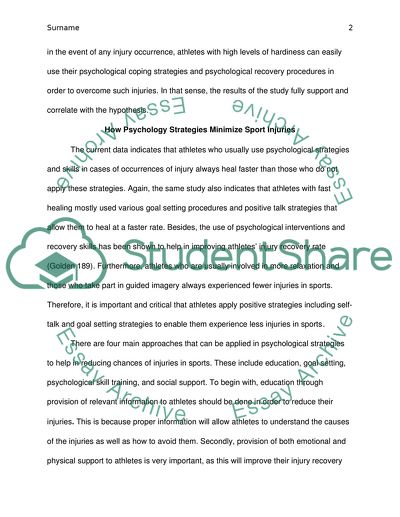Cite this document
(Psychological Effects of Hardiness on Sport Injury Essay, n.d.)
Psychological Effects of Hardiness on Sport Injury Essay. Retrieved from https://studentshare.org/sports-and-recreation/1630103-research-methods-how-does-psychology-play-a-part-in-athletes-recovering-from-injuries
Psychological Effects of Hardiness on Sport Injury Essay. Retrieved from https://studentshare.org/sports-and-recreation/1630103-research-methods-how-does-psychology-play-a-part-in-athletes-recovering-from-injuries
(Psychological Effects of Hardiness on Sport Injury Essay)
Psychological Effects of Hardiness on Sport Injury Essay. https://studentshare.org/sports-and-recreation/1630103-research-methods-how-does-psychology-play-a-part-in-athletes-recovering-from-injuries.
Psychological Effects of Hardiness on Sport Injury Essay. https://studentshare.org/sports-and-recreation/1630103-research-methods-how-does-psychology-play-a-part-in-athletes-recovering-from-injuries.
“Psychological Effects of Hardiness on Sport Injury Essay”, n.d. https://studentshare.org/sports-and-recreation/1630103-research-methods-how-does-psychology-play-a-part-in-athletes-recovering-from-injuries.


